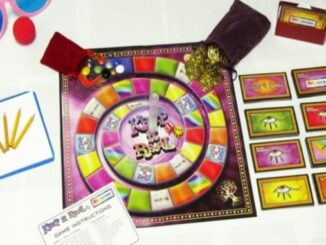
A lot has been said about the power of compounding in recent years. The discourse states that our brains are not wired to compute time, uncertainty, and long-term impacts of our decisions in our daily circumstances. While ordering food at a restaurant, ordering a salad instead of a burger might not make a difference in one day. But over a few weeks, the choices do add up. This is why instead of relying on making the right decisions every time, establishing systems to make those decisions makes sense. Systems also compound, which is a key determinant in achieving long term goals. This type of thinking, where we invest extra resources into a system that benefits us in the long run, is done in games through mechanisms called engines.
Engine-building games are reliant on making systems of resources that become more efficient and rewarding as the game carries on. As with any type of system, there is a cost of setting up, which is difficult to reason for when there is an alternative that brings immediate benefits. Let’s take an example of a railway system. In Delhi, the capital city of India, there was a lot of resistance towards building a metro train infrastructure to support the growing traffic and population. Many citizens and opposition parties reasoned that the government should simply focus on improving roads and buses, blind to the environmental and operational benefits of urban trains. Also cited were reasons of initial cost and change of habits required in citizens. More than two decades have passed since these debates were put to rest. The evidence has made a strong case for efficient systems, as trains require significantly less energy and fewer human operators even as the city grows. However, some other cities like Jakarta and Karachi
have suffered from myopic views which have led to disastrous congestions on their roads.

[Make sure to check out The Ludogogy Podcast interview with Elizabeth Hargrave, the creator of Wingspan, soon to be published on the Podcast Page.]
As it stands, most of the games around us are an exercise in planning. Engine-building games are slightly different in the aspect that they reward behaviors that force us out of reactionary ways. Mastering these games requires a farsighted approach. The most approachable example is chess. Chess players often plan their moves and the opponent’s a few turns in advance. Gradually, the placement of pieces starts becoming more meaningful – to the untrained eye, some moves may look random, but the later stages of the game usually justify why the knight was placed centrally, why the bishop was placed on a diagonal without any apparent benefits immediately.
Even though carrying the discipline to build engines seems like a utopian habit, the decisions involved are no cakewalk. There are checks and balances involved in games which ensure that engines make sense, and are not a win-all trick that will get you guaranteed success every time you play. The difference between leading and trailing teams has to be fair enough, a difference that can be recovered in a few critical turns of a game. No resource has to be overpowered, neither should a type of strategy be too penalizing. Let’s discuss some of the experiences from top board games that shed light on the design of engines.
Gizmos
The objective of Gizmos is to build an engine by picking higher cards to add to your pipeline, with the goal of eventually acquiring all the necessary components to achieve victory. This type of engine-building mechanism allows for a lot of experimentation and flexibility in terms of strategy, as there’s less focus on rigidly following a set structure and more opportunities to try out different approaches.
In terms of real-world applications, this style of gameplay can be seen as a metaphor for product management. Just like in Gizmos, product managers must build a pipeline of components that work together in order to bring a product to market. They must experiment with different strategies to determine the most effective approach, and constantly adapt their plan as the market changes. By allowing for a lot of experimentation in a quick time frame, this type of engine-building mechanism can enable managers to try out different strategies and approaches to product development, helping them to find the most efficient and effective way of working.
Additionally, by focusing on strategy rather than structure, this mechanism can encourage managers to be more creative and innovative in their approach to product management.
Spice Road
Spice Road is a deck-building / tableau-building game where players acquire and trade spices and gems to collect victory points. The engine-building mechanism in “Spice Road” involves constructing a deck of cards that can generate resources and victory points efficiently and consistently. This requires players to carefully select which cards to acquire and when, as well as plan for how to best use their resources to maximize their points.
As a learning game, Spice Road can teach several skills and principles, such as resource management, planning and execution, and risk management. By playing the game, players can learn how to optimize their resources and make decisions that will lead to success in the long term. Additionally, Spice Road can be used as a tool to teach economic principles, such as supply and
demand, trade, and market dynamics. The game’s mechanics simulate real-world market conditions and can help players understand the consequences of different economic decisions.
Century: Spice Road is available on Amazon
Splendor

Splendor is a board game where players collect and spend gems to purchase and reserve cards representing mines, transportation, and shops, in order to gain victory points. A typical player will usually start by purchasing cards at low cost and reserving cards that will help them acquire gems more efficiently. As they progress, they aim to purchase cards that provide more prestige points and build a well-rounded engine to efficiently acquire and spend gems.
The best players in Splendor focus on building an engine, meaning a set of cards that generate more gems or points with each turn, allowing them to make more powerful moves. This often involves carefully selecting and timing their card purchases and reserves, as well as anticipating their opponents’ moves. The result of these different tactics is that the best players tend to have more efficient and powerful engines, allowing them to outpace their opponents and win more frequently.
Splendor is available on Amazon
Azul

Lastly, Azul is a tile-laying game where players collect tiles of different colors and place them on their player boards in specific patterns to score points. The game is known for its simplicity and elegance, making it a popular choice for families and casual gamers. Players of Azul also use different strategies and engines to maximize their points. For example, some players focus on maximizing points from rows by completing them with the same color tile, while others prefer to collect all tiles of the same color to score big in the end.
The effects of playing Azul according to an engine will depend on the player’s overall strategy and the particular game state. By focusing on the middle column specifically, a player can minimize negative points and restrict their opponents, but they may also miss out on other opportunities to score points by completing rows and columns.
Conclusion
We want to conclude this article by paying a special acknowledgement and note of thanks to our guest contributor Aakrit Patel. He is a seasoned meeple himself and moderates games regularly. Aakrit was our source of understanding Azul in particular for this article, as he demonstrated the benefits of playing through the middle column. He also revised some of our observations in the other games, telling us the benefits-versus-costs analyses in some situations.
- Social & Emotional Learning (SEL) with Tomo Club - 7th March 2023
- The Power of Compounding in Games - 14th February 2023
- Playing your Cards Right – Walkman Lab - 13th September 2022
- Social & Emotional Learning (SEL) with Tomo Club - 7th March 2023
- The Power of Compounding in Games - 14th February 2023
- Playing your Cards Right – Walkman Lab - 13th September 2022





Be the first to comment